The Mental Health Benefits of Travel for Children
Whilst writing a post on the benefits of family travel we realised that there was so much more to say about the mental health benefits of travel for children.
We feel this is a vitally important benefit, especially in this day and age when our lives are so busy and we may not be able to give our kids the focus they need.
Travelling the world with your children gives them a great gift. Of course, there are times when we can’t travel in person (although we can travel virtually) – so just travelling locally or getting the kids outdoors for family walks and putting the tent up in the garden will also help.
If you need any inspiration to travel with kids, have a look at these inspiring short travel quotes. They really resonate with us.
Mental Health awareness
In recent years we’ve noticed mounting media attention regarding the increase in mental health issues, particularly in children. According to the Mental Health Foundation, mental health problems affect about 1 in 10 children and young people; a worrying increase from 30 years ago.
The Mental Health Foundation also goes on to say ‘The emotional well-being of children is just as important as their physical health. Good mental health allows children and young people to develop the resilience to cope with whatever life throws at them and grow into well-rounded, healthy adults’.
This is ultimately what we want for our kids right??
New parents are routinely bombarded with information about looking after the physical health and well-being of their children, but there hasn’t been as much support on the mental health awareness side of things. World Mental Health Day is helping to improve awareness, but we wanted to dig further into it.
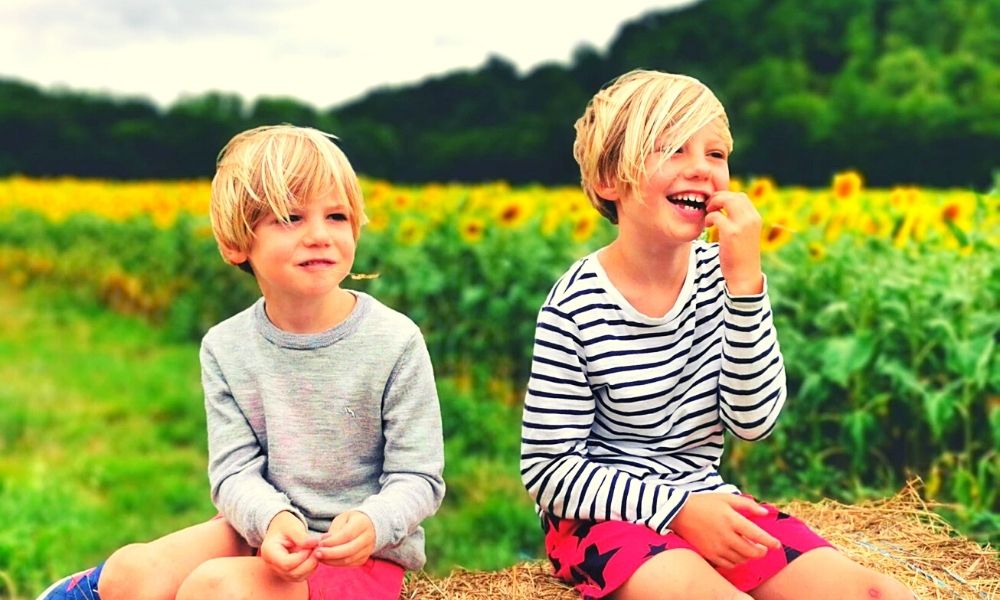
Mental Health matters
Ed and I have tried our best to make sure our boys eat healthy foods (most of the time) and get out and exercise regularly, but when it came to their mental health we felt a little clueless.
Luckily for us, a good mum friend and former primary school teacher, Sarah, recognised the problem of increasing mental health issues in children and decided to retrain as a Relax Kids coach. She now works with children, helping them to develop their emotional well-being and resilience. We were chatting with Sarah about her work recently, and got on to the topic of how travel can have a positive impact on children’s mental well-being.
And the great news is that most (if not all) of the key skills beneficial to helping keep a child’s mind healthy can be acquired through travel. There are, in fact, lots of mental health benefits of travel for children.
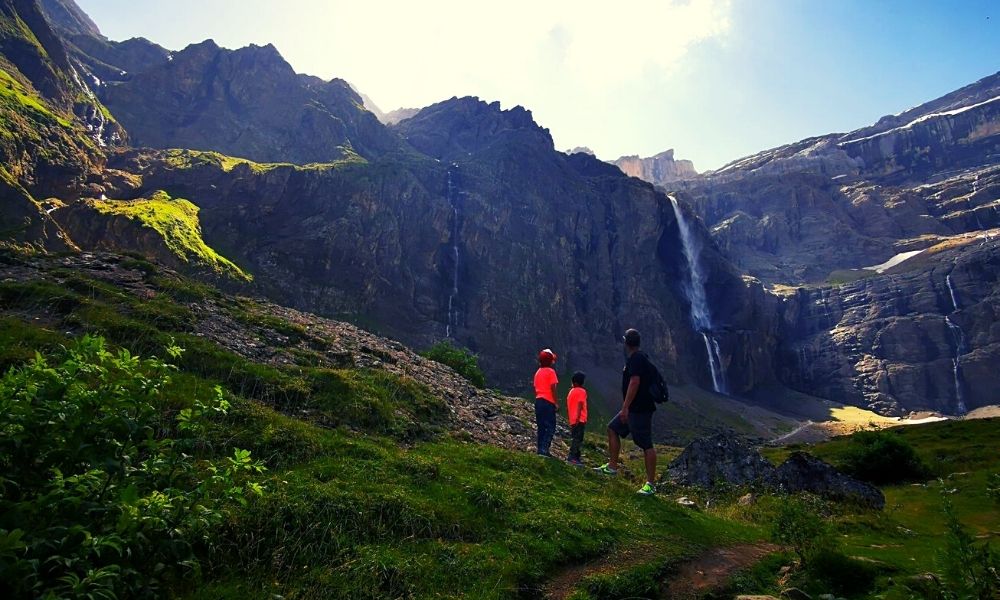
Mindfulness for children
Travelling can help children (and adults alike) to become more mindful. Mindfulness is essentially focusing your attention on what is happening in the present moment. Children are naturally mindful, and we as adults can learn from their ability to investigate and be inquisitive.
New experiences and places provide wonderful opportunities to remind one another of the importance of stopping and becoming aware of our surroundings, using all 5 senses; sight, sound, touch, smell, taste.
Our boys are always stopping to look at things in detail, like a tiny trail of ants marching across a pathway, prodding something unfamiliar or noticing and commenting on unfamiliar smells.
These little things would have gone unnoticed by us, or perhaps we would have noticed but dismissed them without giving them much thought because we have so many other things to think about. But travelling with kids brings us back to basics; to become more mindful again.
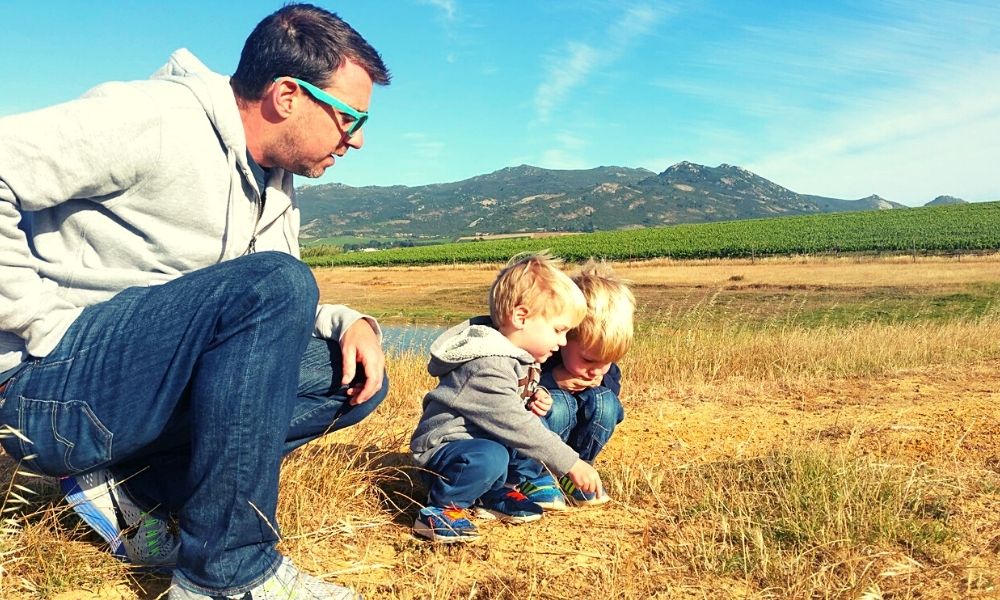
Positive family relationships
One of the most important lessons children learn whilst travelling is building positive relationships with family. A strong, happy family gives them a sense of comfort and confidence. With this sense of comfort comes increased self-esteem and in turn greater brain development.
When we travel we see huge developmental leaps in our kids, whether it be their language (even just learning to say hello in a different language) or the ability to self-settle in a new bed in unfamiliar accommodation.
Over time, the kids just take travelling in their stride and every day is an adventure. We love how they question things like ‘Why is it so much hotter in Sri Lanka than England?’ or ‘What is the difference between a crocodile and an alligator?’
One thing we have learned from our travels is not to overstimulate the kids. Everyone needs some downtime and one of the best ways we have found to give them downtime is Mindfulness colouring. We always have a colouring book and pens with us for this purpose. This is one of the many travel gifts for kids we recommend.
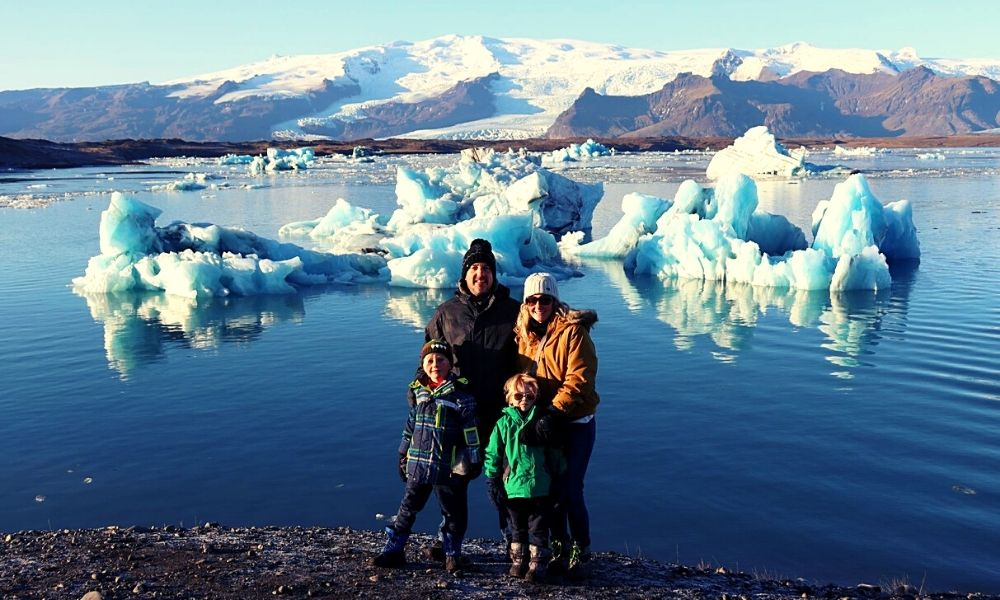
Family travel in Iceland
The PERMA Model
Sarah introduced us to psychologist Martin Seligman’s concept of the ‘PERMA’ model. He says that there are five core elements of well-being and happiness, which can help people reach a life of fulfilment, happiness, and meaning.
We had never heard of Seligman or PERMA before, but having the model explained to us, it made a lot of sense and we felt that each of the core elements related in some way to our family travels.
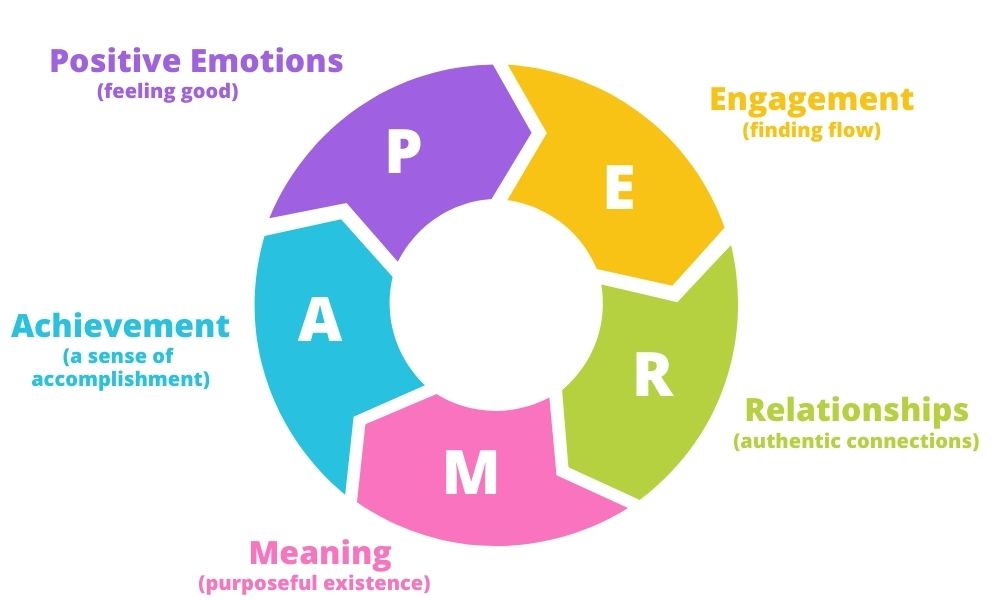
Martin Seligman’s PERMA Model
The five elements are:
Positive Emotion
Quite simply, it is important to try to focus on the positives. Of course we have highs and lows in our lives, but focusing on the positives throughout is key. Pleasure and enjoyment are important ‘positive emotions’. If a child attempts a complex task and completes it, they will feel a sense of joy and satisfaction.
They learn perseverance which is an important life skill. Travelling presents so many opportunities to learn new skills or try new things, whether it be going on a long hike without asking to be carried or learning to swim / improving their swimming strokes.
We did a 7km hike exploring Petra when our youngest son was 3 and he managed it all by himself. He still remembers this walk and refers to it as his longest walk ever. He has since done longer walks, but this has obviously stayed with him as a huge achievement.
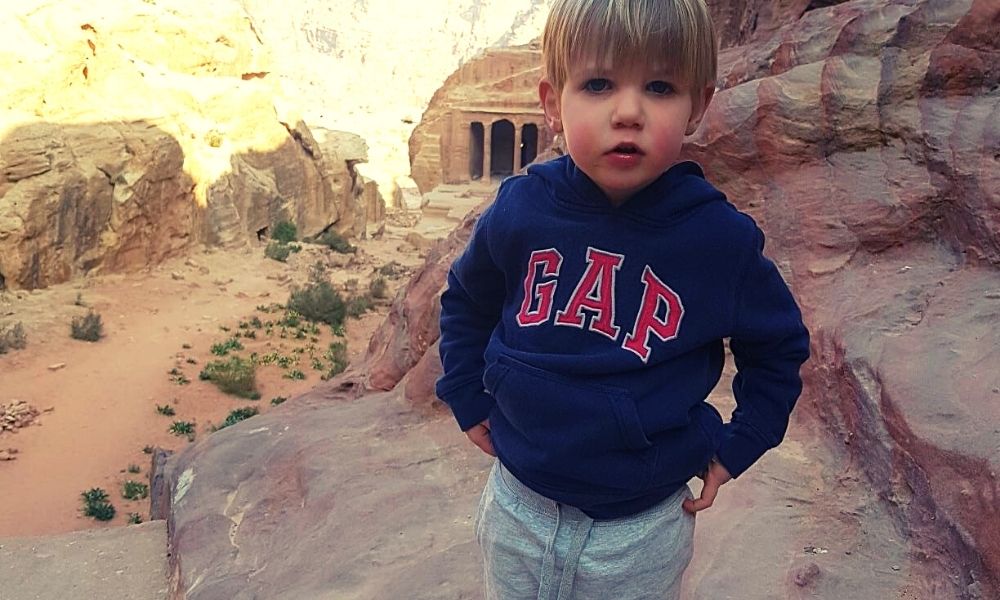
Engagement
It is important to find an activity that needs our full engagement. If we enjoy doing something – we become fully immersed in it, whether it be sport, or board games, cooking or travel.
Being fully immersed and engaged in something you enjoy is hugely beneficial for a healthy mind. Travel for our family ticks the box of doing something we all enjoy. We even throw sport, board games and cooking into the mix when travelling as we enjoy all of those too.
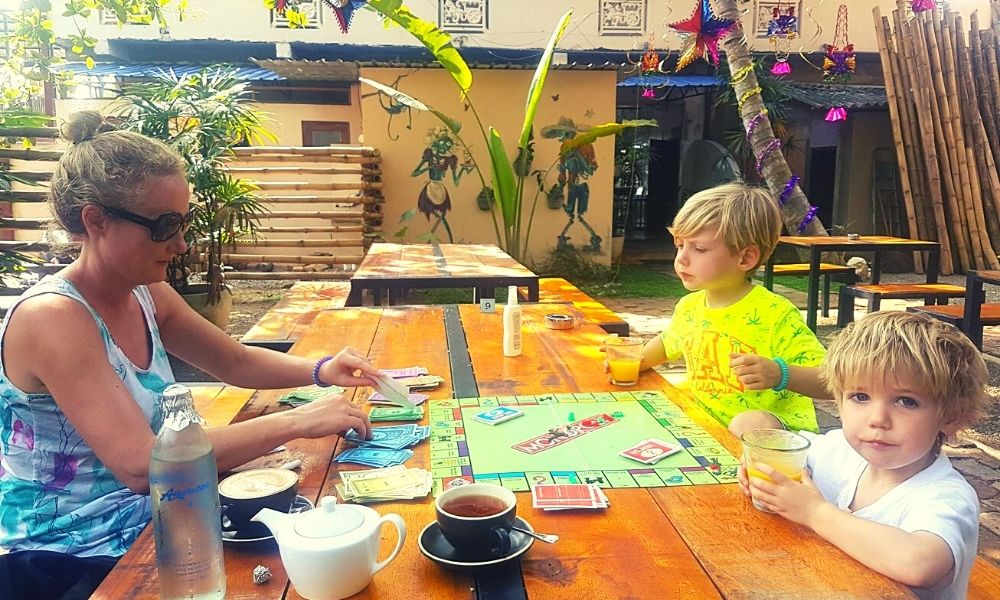
Relationships
Humans are social animals and we thrive with strong social interaction. Spending quality time together when travelling as a family helps strengthen relationships. The kids see that we enjoy spending time with them which in turn gives them great comfort.
We have a much stronger bond when travelling together as we face and deal with challenges as a team such as working out the right train (and getting on it!), packing up our bags on a transit day, map reading and finding somewhere to eat that we will all enjoy.
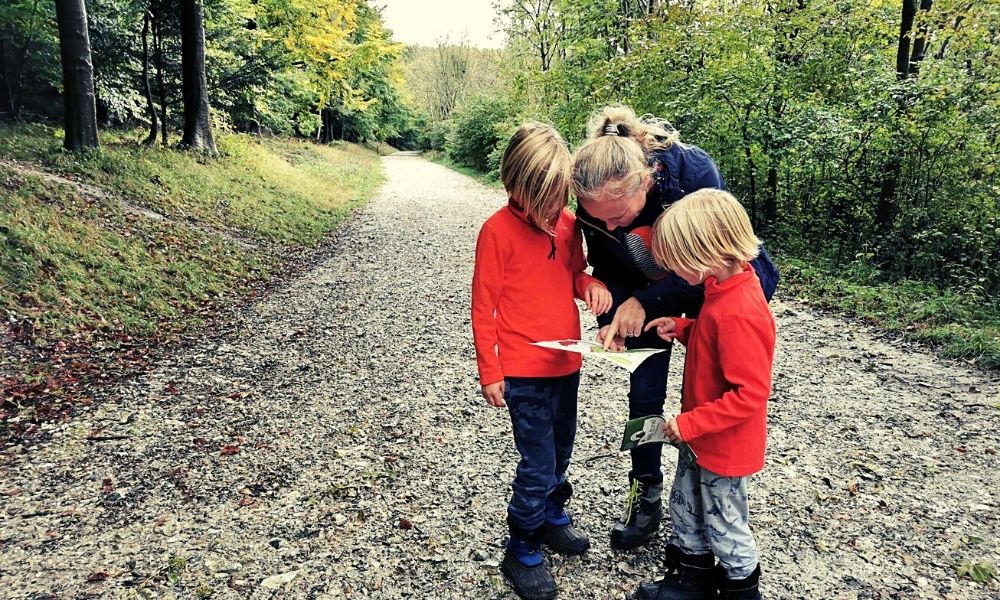
Meaning
Travelling gives kids (and adults) a greater understanding of the world by giving it more meaning, which in turn helps them to identify their place in it and so making them feel comfortable in their surroundings. This is important to living a life of happiness and fulfilment.
Accomplishment
Having goals and ambition in life can help us to achieve things that can give us a sense of accomplishment. By opening ourselves up to new experiences through travel, we push ourselves to achieve new things.
It may be taking that bucket list bungee jump, taking that first flight with your toddler that you have been dreading or learning the basics of a new language to help with your travels. There are so many goals you can set yourself when travelling, but make sure they are realistic and achievable. Here, the kids were thrilled to be getting the hang of kayaking.
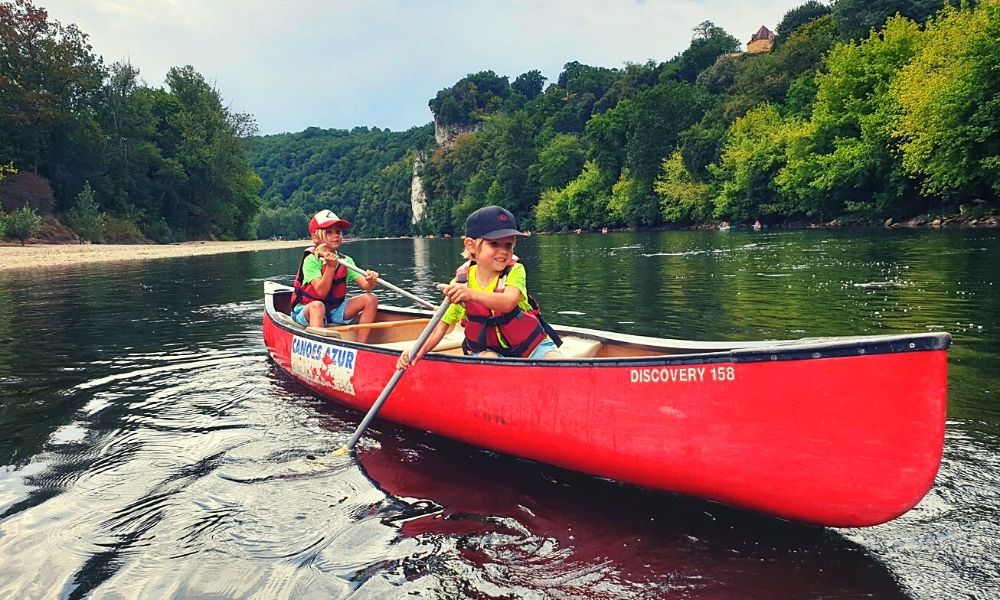
Break the routine
Nowadays, we often lead such busy lives and it is easy to overlook the importance of these elements. As we have mentioned already, the daily routine can mean our attention is not as focused on the kids as it could be. Too much routine means the brain stops experiencing new things, which is vital for healthy brain development.
This is not to say that routine is not good for kids. Routines can help reduce stress because kids know where they are with a routine, and know what to expect – and let’s be honest, as parents don’t we all strive for a good sleep routine?! But occasionally breaking the routine to try something new can be highly beneficial.
We hope this post has given you food for thought and helped highlight the mental health benefits of travel for children.
If you want to find out more on this subject, you can contact Sarah through her Facebook page.
You might also like…
Flying With A Baby: 15 Tips To Make That First Flight Easier
Family Camping With Toddlers: 8 Essential Tips To Make It Fun
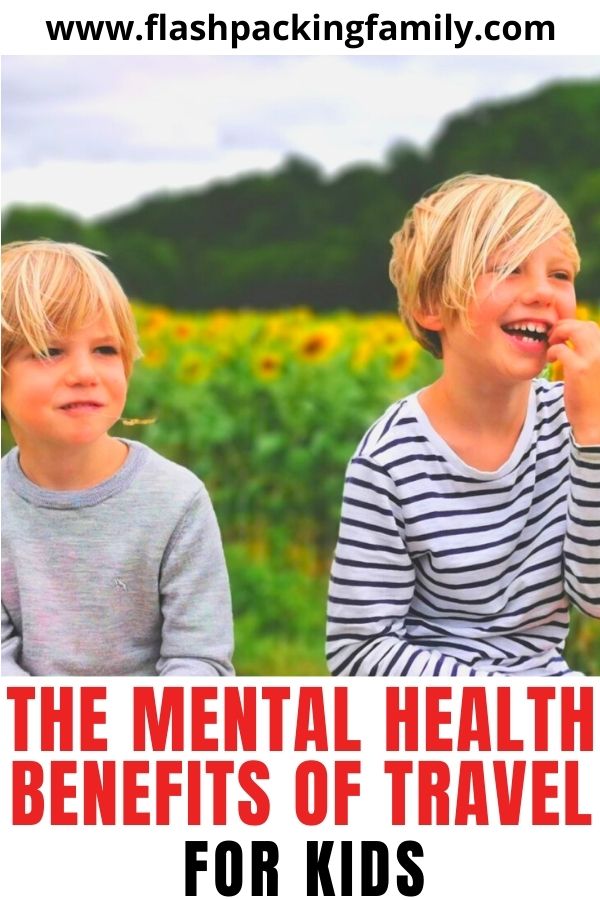
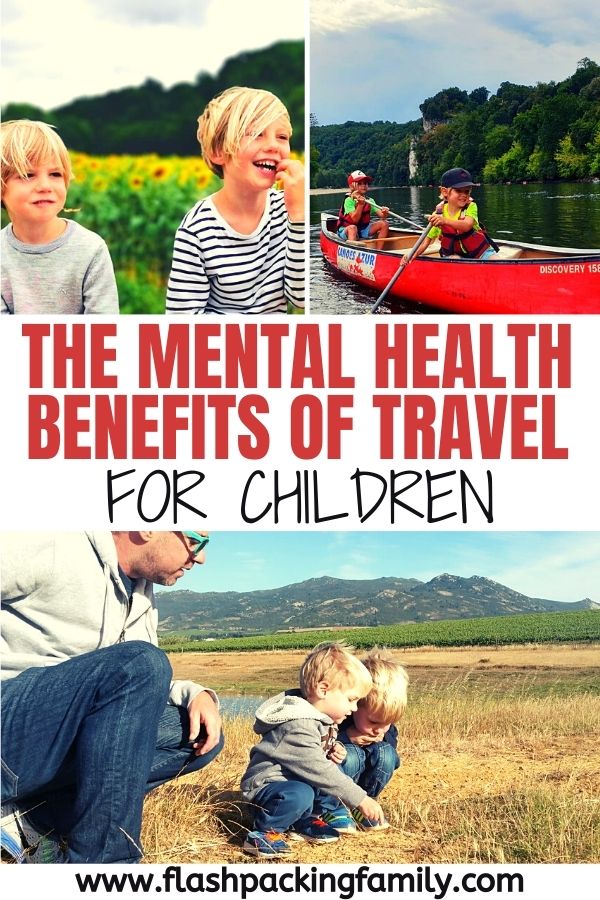

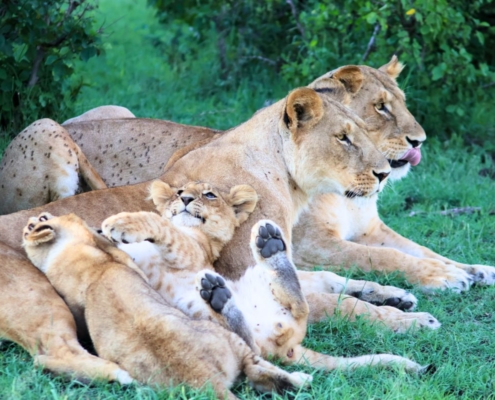

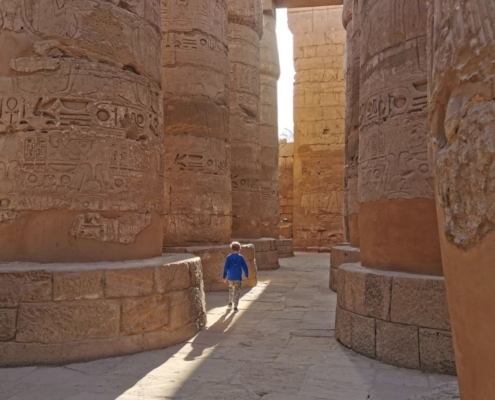
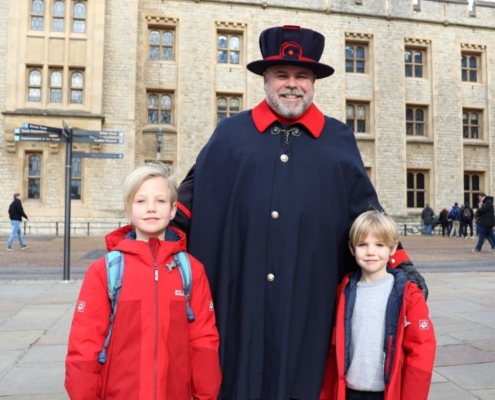

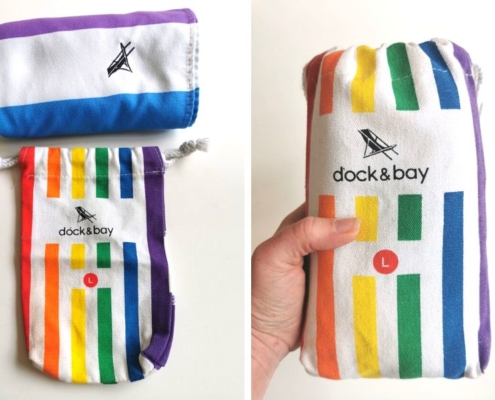
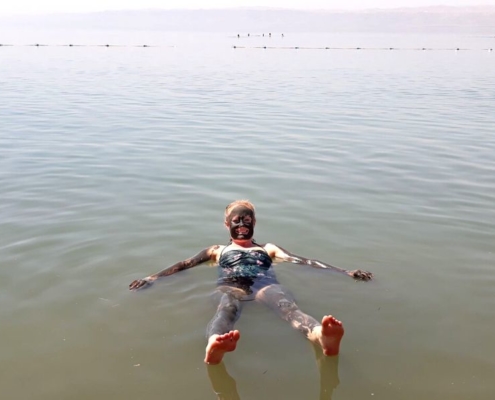
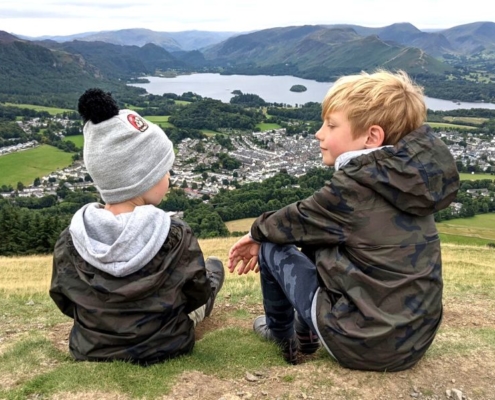
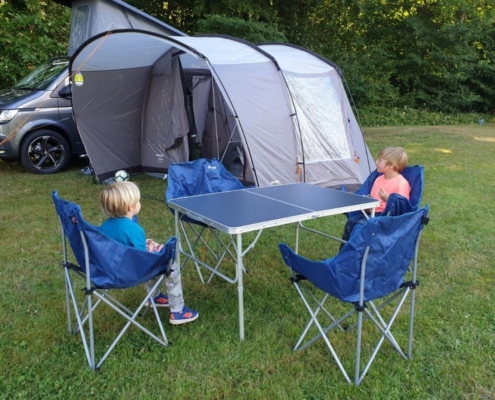


I would also like to highlight that travelling reduces screen time for your kids and help them focus on new things but there are many parents who encourage gadgets to their kids even while travelling instead of them focusing and learning something new. Make sure to take your kids out every once in a while and give them the opportunity to explore new things. It is very important for us to make sure that our next generation can experience what we did and that can only happen when we reduce the screen time for them
Yes, we totally agree. Reduced screen time when travelling is a big benefit.
Nice! The information I got through this blog has really helped me in understanding this Mental Awareness That was something, I was desperately looking for, thankfully I found this at the right time.
Thanks for your comment. I’m glad you found it helpful.
It’s great that you talked about how traveling with your kids helps with relationship growth. Recently, my sister and I started to think about going on a trip with our families. We think it’d be a good idea for the kids to distract themselves from everything, so we’ll be sure to look into it. Thanks for the advice on how traveling improves our mental health.
thanks for your comment